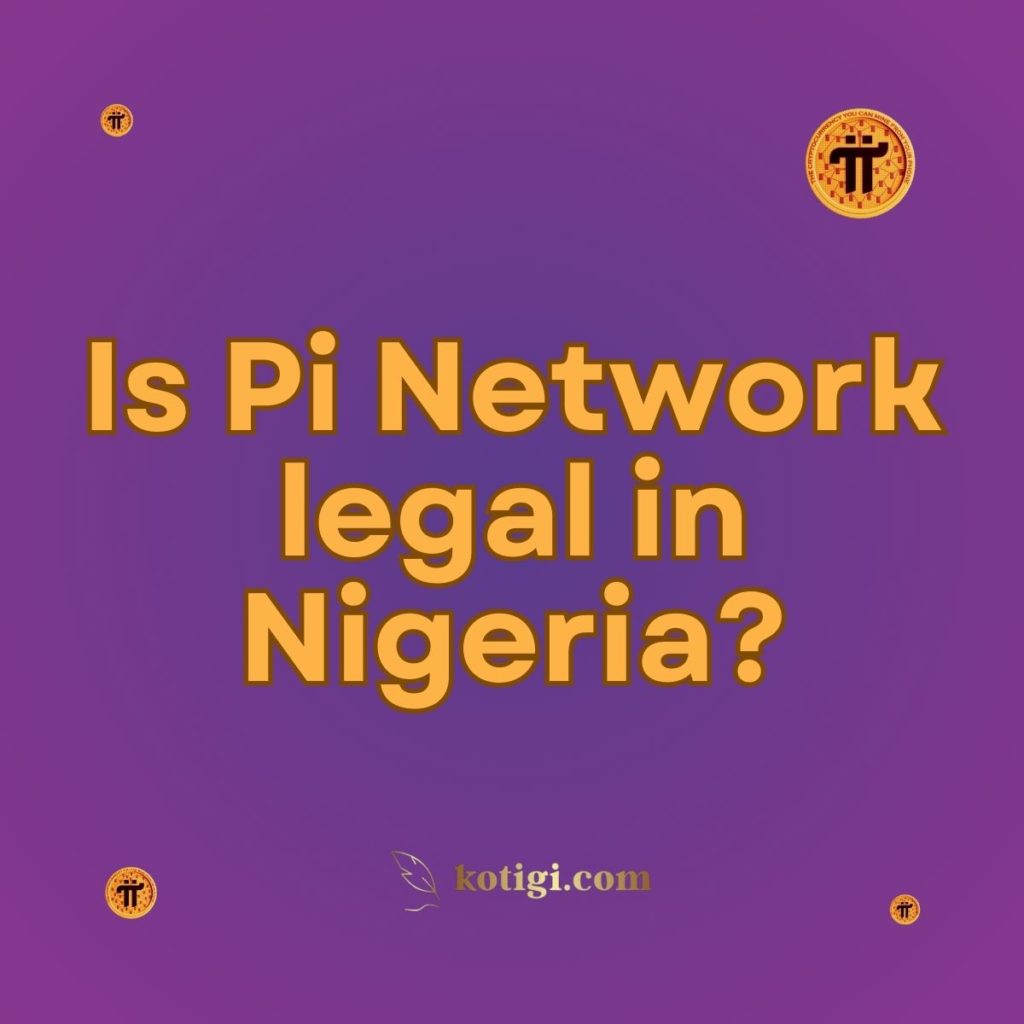
Is Pi Network legal in Nigeria?
The legal status of Pi Network in Nigeria is influenced by the country’s regulatory stance on cryptocurrencies and digital assets. Here’s a comprehensive overview of how Pi Network fits into the Nigerian legal landscape:
1. Cryptocurrency Regulation in Nigeria
1.1. General Legality:
Cryptocurrencies, including Pi Network, are not explicitly illegal in Nigeria. However, the Central Bank of Nigeria (CBN) has taken a stringent stance against the use of cryptocurrencies within the formal banking system. This means while cryptocurrencies are not banned, they are not recognized as legal tender, and their use is heavily restricted.
1.2. Regulatory Bodies:
The primary regulatory bodies overseeing financial activities in Nigeria include the Central Bank of Nigeria (CBN) and the Nigerian Securities and Exchange Commission (SEC). The CBN focuses on monetary policy and financial stability, while the SEC regulates securities and investment activities.
2. Central Bank of Nigeria’s Position
2.1. CBN Directive on Cryptocurrencies:
In February 2021, the CBN issued a circular instructing all banks and financial institutions to close accounts associated with cryptocurrency transactions. This directive effectively prohibits financial institutions from facilitating the buying, selling, or trading of cryptocurrencies, including Pi Network, through the Nigerian banking system.
2.2. Impact on Cryptocurrency Usage:
The CBN’s directive does not make cryptocurrencies like Pi illegal, but it restricts their use by preventing access to the formal financial system. This has made it challenging for users to convert Pi coins into Nigerian Naira or use them for transactions through banks and other financial institutions.
3. Securities Regulation
3.1. Nigerian SEC’s Stance on Cryptocurrencies:
The Nigerian SEC has indicated that digital assets that qualify as securities will be regulated under its purview. This means that if Pi Network’s tokens are classified as securities, the network would need to comply with SEC regulations, including registration and disclosure requirements.
3.2. Potential Classification as Securities:
As of now, Pi Network has not been officially classified as a security by the Nigerian SEC. However, if it were to offer an Initial Coin Offering (ICO) or similar financial products, it might fall under the SEC’s regulatory framework.
4. Anti-Money Laundering (AML) and Know Your Customer (KYC) Requirements
4.1. Compliance with AML/KYC Regulations:
Nigeria has strict AML and KYC regulations, particularly in the financial sector. While Pi Network is not directly regulated as a financial institution, it must implement procedures to prevent money laundering and ensure compliance with international standards if it facilitates transactions.
4.2. Registration Requirements:
If Pi Network engages in activities considered money services, it may need to comply with Nigerian financial regulations, including registration with relevant authorities.
5. Consumer Protection and Legal Risks
5.1. Consumer Protection Laws:
Nigeria has consumer protection laws that apply to all businesses operating in the country, including those in the cryptocurrency space. Pi Network must ensure it operates transparently, providing clear information to users and avoiding any deceptive practices that could lead to legal issues.
5.2. Legal Risks and Uncertainty:
Given the restrictive stance of the CBN and the evolving regulatory environment, Pi Network faces potential legal risks in Nigeria. This includes the possibility of future regulatory actions that could impact its operations or even lead to further restrictions on its use.
6. Future Regulatory Developments
6.1. Potential for Future Regulation:
Nigeria’s approach to cryptocurrency regulation is still evolving. The Nigerian government and regulatory bodies may introduce more comprehensive laws or regulations concerning cryptocurrencies in the future. Pi Network will need to monitor these developments closely and adjust its operations accordingly.
6.2. Legal Advice and Compliance Strategy:
To operate legally in Nigeria, Pi Network should seek legal advice and develop a strategy to ensure compliance with existing and future regulations. This includes understanding the implications of CBN directives, SEC regulations, and consumer protection laws.
Conclusion
Pi Network operates in a complex and restrictive regulatory environment in Nigeria. While it is not explicitly illegal, the Central Bank of Nigeria’s directive against cryptocurrencies significantly limits its use within the formal financial system. Compliance with existing regulations, including potential securities laws and AML/KYC requirements, is essential for Pi Network to maintain its legal status in Nigeria. As the regulatory landscape continues to evolve, Pi Network must stay informed and adapt to any new legal requirements to operate successfully in the country.




